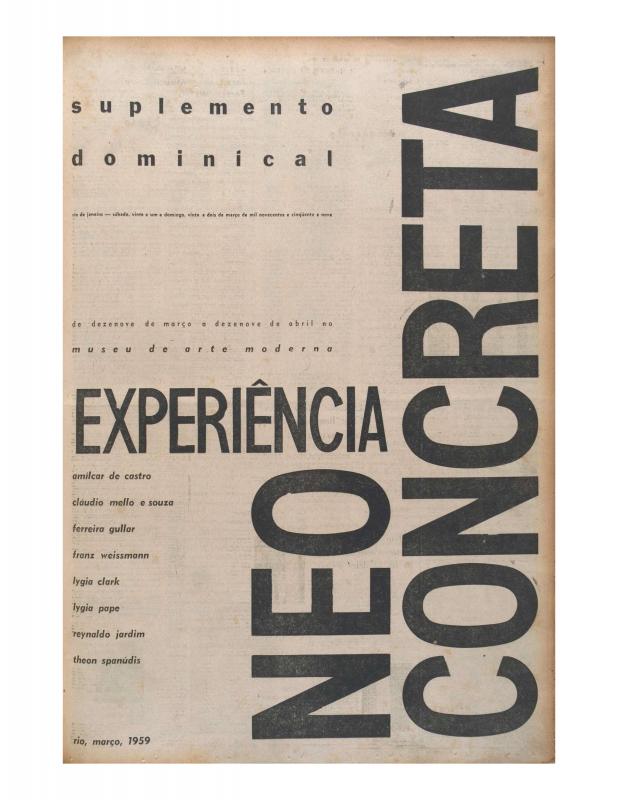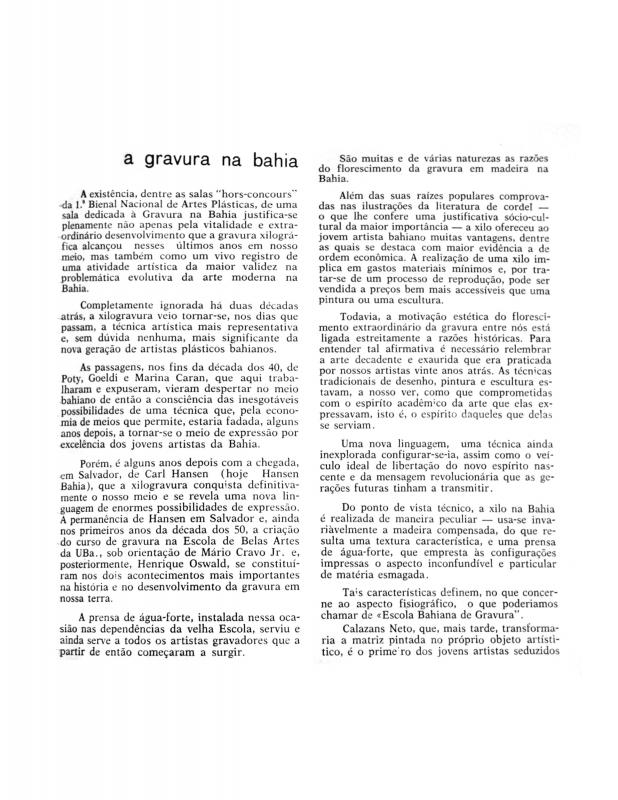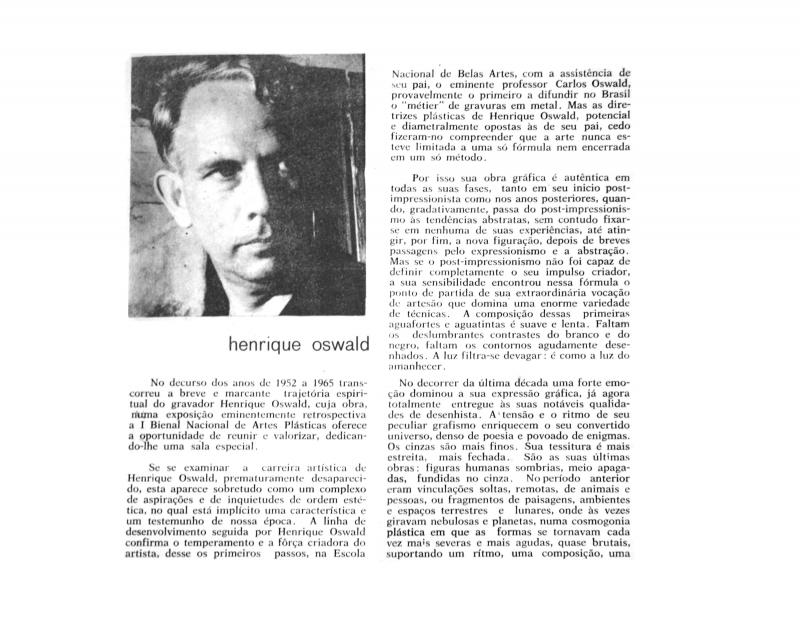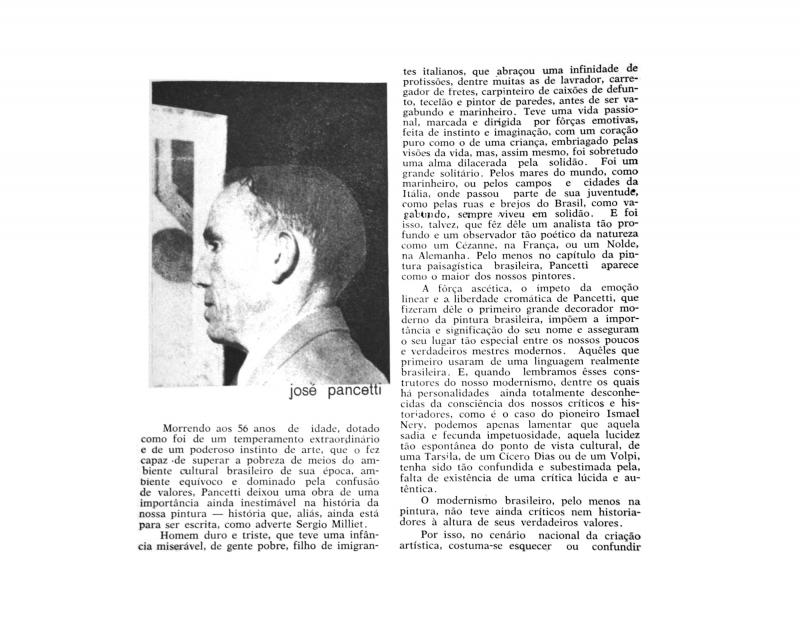There were aspects of the first Bienal Nacional de Artes Plásticas held in Salvador (state of Bahia, 1966) that revealed the idiosyncratic perspective of the critic Theon Spanudis. As he states in this document, he disapproves of the inclusion in the biennial of Brazilian artworks linked to either Pop art or to the New Figuration, particularly experimental work, such as that of Lygia Clark and Hélio Oiticica. Spanudis contends that visual arts values should prevail, since he deems them eternal. During the prior decade, the critic (whose training was in psychoanalysis) had been a defender of the most radical approaches. In fact, he was one of the signers of the “Manifesto Neoconcreto” [see ICAA digital archive doc. no. 1110328], drafted by Ferreira Gullar in March 1959 (Jornal do Brasil, March 22, 1959). Paradoxically, Lygia Clark was also a supporter of this manifesto. In the current text, written some years later, Spanudis now champions the existence of a “formal language,” which he considers the determinant of the value of art. Given this belief, he is reluctant to accept the work based on Pop and Conceptual art produced in Brazil in the 1960s. His analysis points out that the first Bienal Nacional de Artes Plásticas set a priority on work by young artists who proposed new languages, whether that of experimentation or of the poetics of Constructivist art.
Born in Turkey, Theon Spanudis (1915–1986) grew up in Greece, was educated in Vienna, and emigrated to Brazil in 1950, where he worked as a psychoanalyst until 1956. He then decided to take up literary and art criticism. He was a regular contributor to Habitat revista das artes no Brasil, edited by the architect Lina Bo Bardi. Just a few years after he signed the “Manifesto Neoconcreto,” he took a less radical stance and even criticized the movement led by Ferreira Gullar.
[As supplementary reading on the first Bienal Nacional de Artes Plásticas in Bahia, see the following texts in the ICAA digital archive by: Riolan Metzker Coutinho, “A gravura na Bahia” (doc. no. 1110849); and by Wilson Rocha, “Henrique Oswald” (doc. no. 1110851) and “José Pancetti” (doc. no. 1110852)].




